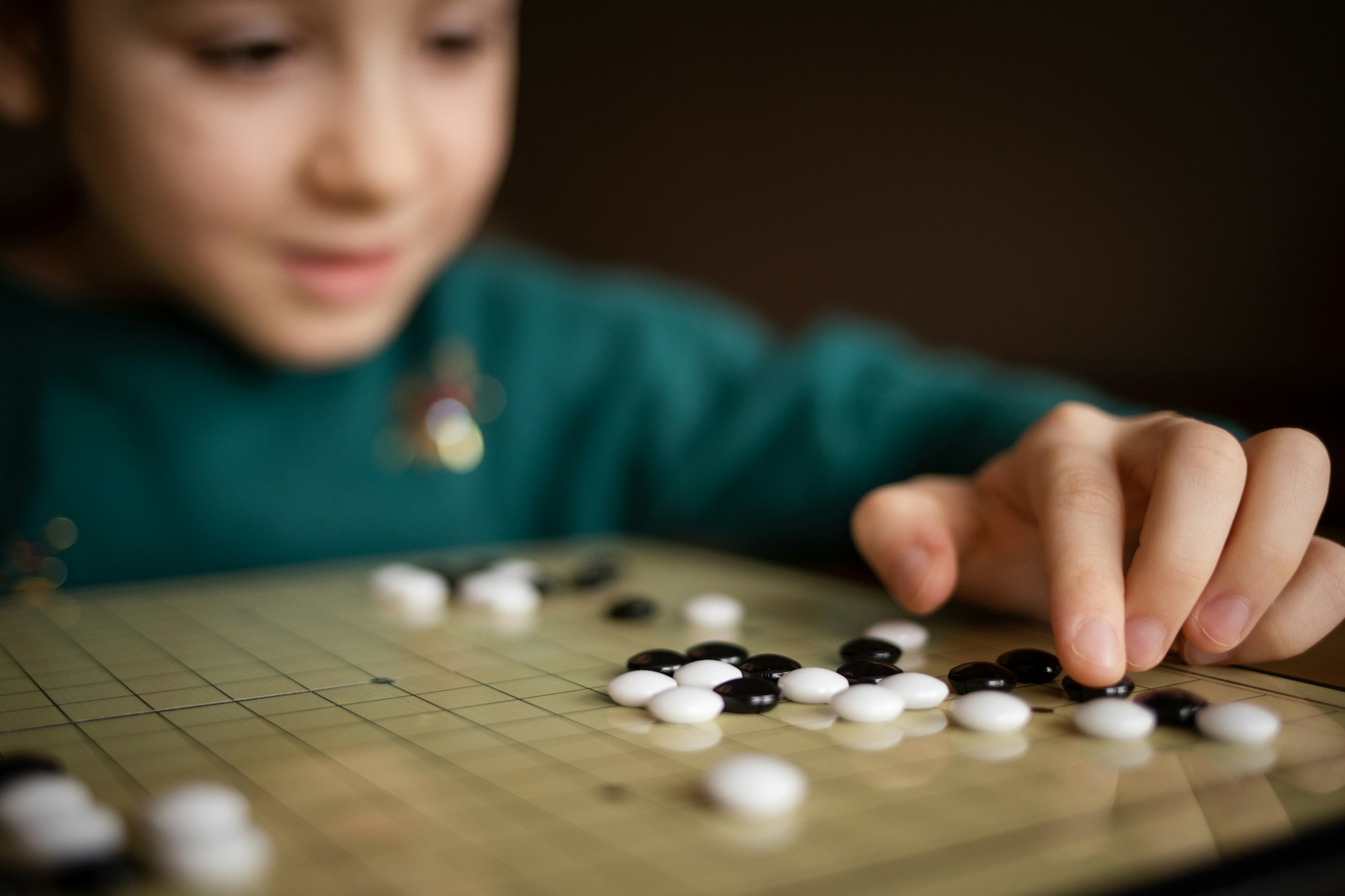How AI is Changing the Game of Go
Go is a classic strategy game that originated in ancient China. Played on a 19×19 grid, players take turns placing black or white stones, aiming to control more territory than their opponent. The simplicity of its rules contrasts with the strategic complexity, making it a challenging game. Traditionally, mastering Go took years of practice, with top players like Lee Saedol becoming legends in the process.

AI Shakes Up Go
In 2016, a turning point came when AlphaGo, an AI developed by Google’s DeepMind, defeated Lee Saedol, one of the best Go players in the world. This was not just a big moment in the history of Go; it showed that AI could match and even surpass humans in complex strategic thinking.
How AlphaGo Works
AlphaGo uses techniques like neural networks and machine learning, which involve the AI learning from huge databases of Go moves and improving by playing against itself. This approach shows that AI can tackle tasks that require a lot of brainpower, not just routine or repetitive tasks.
AI’s Effect on Players
The defeat of Lee Saedol by AlphaGo was a shock, not just to him but to the whole Go community. It made people question the relevance of human skill in a game where an AI can excel.
New Training Methods
Since AlphaGo’s victory, Go players have started using AI as part of their training, learning new strategies from it. This has changed how players train and improve at the game, showing how technology can influence traditional practices.
What This Means Beyond Go
The story of AlphaGo and Lee Saedol is about more than just a game. It’s a preview of how AI might affect other areas of life, including jobs and creative fields.
AI in the Workplace
AI’s ability to perform complex tasks could change how we work, making some jobs easier and others obsolete. This could lead to significant changes in the workforce and requires careful consideration of how we integrate AI into our lives.
This overview looks at the impact of AI on the ancient game of Go and what it means for traditional skills and societal changes. It highlights how advancements in AI are challenging human capabilities and influencing future trends in various sectors.

Frequently Asked Questions (FAQ)
1. What is Go and why is it significant?
Go is an ancient strategy game that originated in China over 2,500 years ago. It is played on a 19×19 grid where players take turns placing black or white stones with the objective of controlling more territory than their opponent. The game is significant due to its deep strategic complexity and its cultural importance in East Asia, where it has been a symbol of intellectual prowess and strategic thinking.
2. How did AI, specifically AlphaGo, impact the game of Go?
In 2016, AlphaGo, an AI developed by Google’s DeepMind, defeated Lee Saedol, one of the world’s top Go players. This event marked a significant milestone, showcasing AI’s ability to master complex human tasks. AlphaGo’s success was based on advanced neural networks and machine learning, which allowed it to learn from millions of Go moves and improve through self-play. This victory not only changed the landscape of Go but also highlighted AI’s potential in various complex fields.
3. What are the broader implications of AI’s advancements as seen in Go?
AI’s success in Go reflects its potential to revolutionize various aspects of society. In the realm of traditional skills, it challenges the human mastery that took years to develop. Beyond games, AI’s capabilities suggest significant changes in the workforce, as AI can enhance efficiency but also poses risks to traditional jobs. The integration of AI into different sectors necessitates careful planning to balance technological advancement with societal impact.
Sources The New York Times


